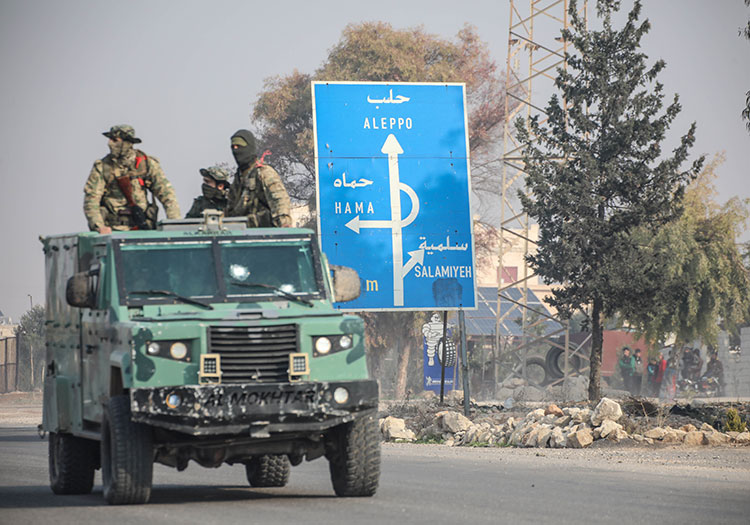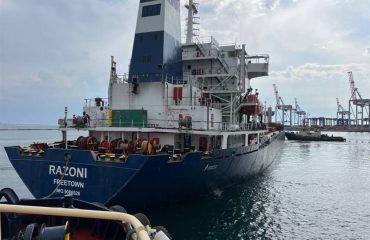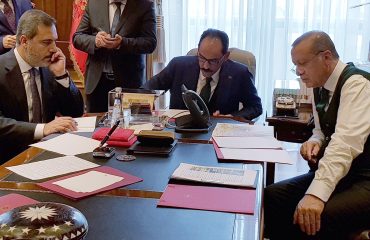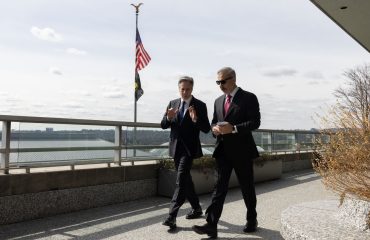

The AKP government, which until 2016 worked to overthrow the Assad regime before shifting its focus to preventing a US-protected PKK-administered Kurdish state in Syria, still clings to rhetoric about dialogue and reconciliation between Assad and the “opposition.” (Photo: AA)
Even Tehran has understood that Damascus is collapsing, but Ankara cannot grasp it – this includes the government, opposition, and intellectuals alike. Those who have pursued politics under the illusion that “solving the problem means making a deal with Assad” – while failing to see that Bashar Assad and the Baath regime barely maintain control over a fraction of Syrian territory, and only then with Russian and Iranian support – are now left lamenting past opportunities.
The ruling Justice and Development Party (AKP) government, which until 2016 worked to overthrow the Assad regime before shifting its focus to preventing a US-protected PKK-administered Kurdish state in Syria, still clings to rhetoric about dialogue and reconciliation between Assad and the “opposition.”
President Recep Tayyip Erdoğan’s December 6 statement that “This is not what we desired” carries multiple layers of meaning. The reality is that Ankara wields little influence over HTS.
Decoding Erdoğan’s “0pposition”
A close reading of Erdoğan’s definition of “opposition” reveals a two-tiered approach: first, include the Syrian National Army but exclude the Syrian Democratic Forces; second, ensure Türkiye’s proxy forces are involved while keeping America’s proxies out.
But what about Iran’s proxy forces? Following Israel’s devastating strikes against Hamas and Hezbollah leadership, the alliance between Hezbollah, Revolutionary Guards, and Shiite militias appears to have crumbled in Syria. Iran’s Foreign Minister Abbas Araghchi, who recently spoke of deploying troops to support Assad, now discusses Assad’s uncertain future and has, for the first time, referred to HTS as “opposition” rather than “takfiri terrorists.”
Yet Foreign Minister Hakan Fidan’s agenda for the Doha meeting with his Astana Group partners – Russian Foreign Minister Sergey Lavrov and Araghchi – still prioritizes Assad-opposition dialogue, despite the group’s diminishing relevance.
If this represents a diplomatic effort until the final hour, that’s understandable – such moves have their place in politics. However, if they’re still pursuing this possibility while HTS approaches Damascus and Tehran loses faith in Assad, it suggests a failure to grasp Syria’s rapidly evolving situation.
Opposition’s misreading
The main opposition CHP exists in a parallel reality. While they’ve quietly abandoned claims that “Erdogan initiated the Syrian civil war,” they remain trapped in the illusion that “peace with Assad will stabilize Syria.” Just before HTS’s advance on Aleppo, CHP leader Özgür Özel spoke of potentially approaching Assad alongside Erdogan, as if they held sway over Assad and the Baath oligarchy that even Moscow and Tehran couldn’t fully control. CHP’s foreign policy and security team appears equally unable to diagnose and adapt to shifting international dynamics.
The Victory Party demonstrates similar disconnection. Ümit Özdağ, who has built his political platform around Syrian refugees in Türkiye, ignores their desire to return home following the fall of Aleppo and Tel Rifat, insisting only he can facilitate their repatriation.
In truth, while Erdogan and the AKP government’s focus on border security and its domestic implications is realistic, they struggle to acknowledge their transition from claiming regional leadership just years ago to pursuing this narrower but more achievable Türkiye-focused objective.
As the saying goes, “The one that got away is always the biggest.”


